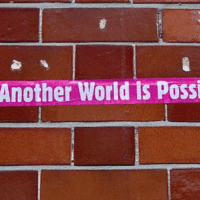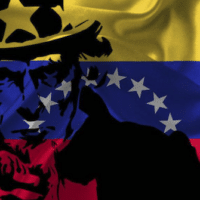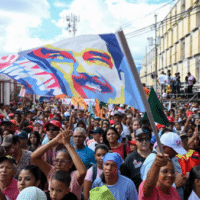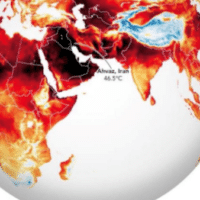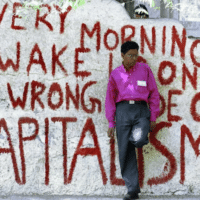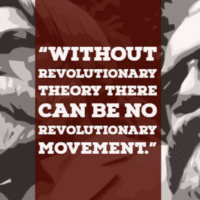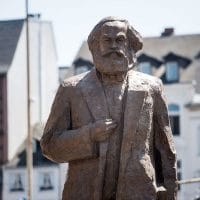-
Why another world is possible: Comments at a socialist rally in Berlin
The following remarks by Paul Le Blanc were delivered at the May 31 evening session of the four-day Marx is’ Muss Kongress 2025 that was held in Berlin and organized by marx21, a left-wing current in Die Linke (the Left Party), which drew 1200 activists. These remarks are now first appearing in digital form, with the author’s authorization, simultaneously on LINKS and Communis. Both sites previously published another contribution by Paul Le Blanc to the event.
-
A Lenin for the 21st century
“The Meaning of Lenin for the 21st Century: Comments to German Comrades” is Paul Le Blanc’s individual contribution to MarxIs’Muss Kongress 2025, to be held in Berlin from 29 May to 1 June 2025.
-
‘Neoliberal and authoritarian’? A simplistic analysis of the Maduro government that leaves much unsaid
According to Hetland, the Maduro government is virtually devoid of any redeeming characteristics. Hetland refers approvingly to the claim made by Maduro’s harshest critics on the left, that his government and the right-wing opposition are “two sides of the same coin”.
-
Socialist politics and revolutionary compromise
In this article, I will discuss types of compromises and why they are necessary and possible.
-
Prioritising anti-U.S. imperialism, Maduro’s Venezuela and the complexities of critical solidarity: An interview with Steve Ellner
Steve Ellner: “The basic contradiction of capitalism is at the point of production, the contradiction between the interests of the working class and those of capitalists.”
-
Venezuela: Opposing the blockade is our main task
The United States is waging an economic war against Venezuela.
-
Lenin’s contributions to political economy
Vladimir Lenin made many valuable contributions to Marxist political economy.
-
Intellectual and political lessons of ‘The Communist Manifesto’ for our time
Karl Marx and Friedrich Engels’ Communist Manifesto was published in February, 1848. It is truly a part of what Marx called world literature that capitalism has given rise to. The Manifesto is a call to revolutionary action. It is important to return to the text now when a large number of people around the world […]
-
The dialectic in the service of revolution
Karl Marx (1818-83), like Georg Wilhelm Friedrich Hegel (1770-1831) before him, emphasized that human societies can and do undergo dramatic transformations, moving from one social order to another where each formation is governed by its own distinct laws, and a discontinuous logic separates one social order from the next.
-
Patriarchy and the origins of women’s oppression
Any vision of a world beyond capitalism involves the liberation of women from oppression, exploitation and discrimination. But just because we might have been able to win revolutionary social change, it does not mean that equal economic, social and cultural rights will be automatic for women.
-
Climate collapse threatens slide to fascism and war
More and more, desperate people seeking refuge in Europe are not just fleeing from economic disaster and war. Many are also refugees from climate collapse.
-
The idea of degrowth communism was Marx’s last breakthrough—and perhaps most important
Even if Japanese Marxist Kohei Saito had not written Marx in the Anthropocene: Towards the Idea of Degrowth Communism, the left today would still need to take the idea of degrowth seriously. This is because, economist and anthropologist Jason Hickel explains, “while it’s possible to transition to 100 percent renewable energy, we cannot do it fast enough to stay under 1.5°C or 2°C if we continue to grow the global economy at existing rates.”
-
Know your enemy: How to defeat capitalism
In a capitalist society, there is always a good explanation for your poverty, your meaningless job (if you have a job), your difficulties and your general unhappiness. You are to blame.
-
The weapon of criticism cannot replace the criticism of the weapon: What knowledge do we need for revolution against capitalism
According to the World Bank, “The COVID-19 pandemic is estimated to push an additional 88 million to 115 million people into extreme poverty this year, with the total rising to as many as 150 million by 2021, depending on the severity of the economic contraction”.
-
CONAIE leader Leonidas Iza — ‘The Correismo/anti-Correismo polarisation only benefits the right’
Nodal spoke with Leonidas Iza, president of the Indigenous and Campesino Movement of Cotopaxi (MICC), in between two elections.
-
Thomas Sankara: An icon of revolution
October 15 was the 33rd anniversary of Thomas Sankara’s death. On this day, he was murdered by imperialist forces at the tender age of 37.
-
Lenin150 (Samizdat): A Lenin birthday book
2020 is the birthday year of Vladimir Ilyich Ulyanov, whom most of us know as Lenin. If still alive, he would be 150 years old.
-
An anti-colonialist turn in Marx?: Questions for Thierry Drapeau
Drapeau writes that the Communist Manifesto “considered Western imperialism as a progressive and beneficial force drawing underdeveloped societies into bourgeois civilization”.
-
All of us began with Marta Harnecker
During an interview, then-Bolivia Vice President Álvaro García Linera and Spanish state parliamentarian Pablo Iglesias were exchanging ideas on classic texts and their own initiation into politics when the Spanish activist proclaimed: “All of us began with Marta Harnecker”.
-
The Coronavirus is stirring the impulse to communism
The Coronavirus pandemic has laid bare the most acute problems of our collective life, its main contradictions.

